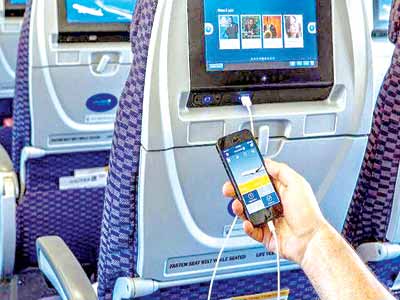
Despite the measures put in place to enhance security of civil aviation operations worldwide, insecurity still remains a critical area of focus among all stakeholders.
Terrorists and cyber attackers have continued to look for new ways to carry out their attacks on aviation operations to achieve their goals, amidst all the efforts to deal with the security threats.
According to operators, one major security challenge, which the civil aviation community ought to quickly focus attention on, is the threat from cyber-attacks.
However, aviation industry is stepping up efforts to enlist coordinated international support in the battle against the threats posed to airlines and passengers by hackers and those seeking to exploit Information Technology systems.
Also, with Wi-Fi and electronics on board, airlines, airports and air traffic management companies are sharing more information than ever before to make flying more efficient and deal with increasing numbers of passengers.
Meanwhile, as part of initiatives to shore up the industry’s defenses, a team has been put together by leading aviation industry associations to work on a declaration on cyber security to put to members of the United Nations’ aviation safety arm next year.
Besides, the International Air Transport Association (IATA) and Tel Aviv University, Israel are to partner to use big data and advanced intelligence to make airlines more efficient and cyber secure.
Under the agreement a new joint center for innovation in aviation will be established and will focus on developing technologies to protect airline reservations systems, authentication for security purposes, and financial systems.
The center will also try to find ways to run airlines more efficiently using big data and advanced intelligence.
IATA, which represents 260 airlines that are responsible for 83 per cent of the world’s airline flights, wants Tel Aviv University to develop security systems in a variety of areas.
Furthermore, as part of the joint activity, IATA’s representatives, together with Tel Aviv University’s international cyber center, will develop technologies and information that are relevant to the field of international flight.
Aircraft manufacturers can also do their bit, particularly as they often have experience in the military sector said the Director General, IATA, Tony Tyler.
The Director for Aviation Security, Boeing, James Vasatka, said that his company has hired hackers to test the systems and software it puts on its planes.
“They (the hackers) are absolutely stunned at the quality we put in our software and products. It would be very difficult in today’s environment to disrupt that for the flight-critical systems,” he said.



